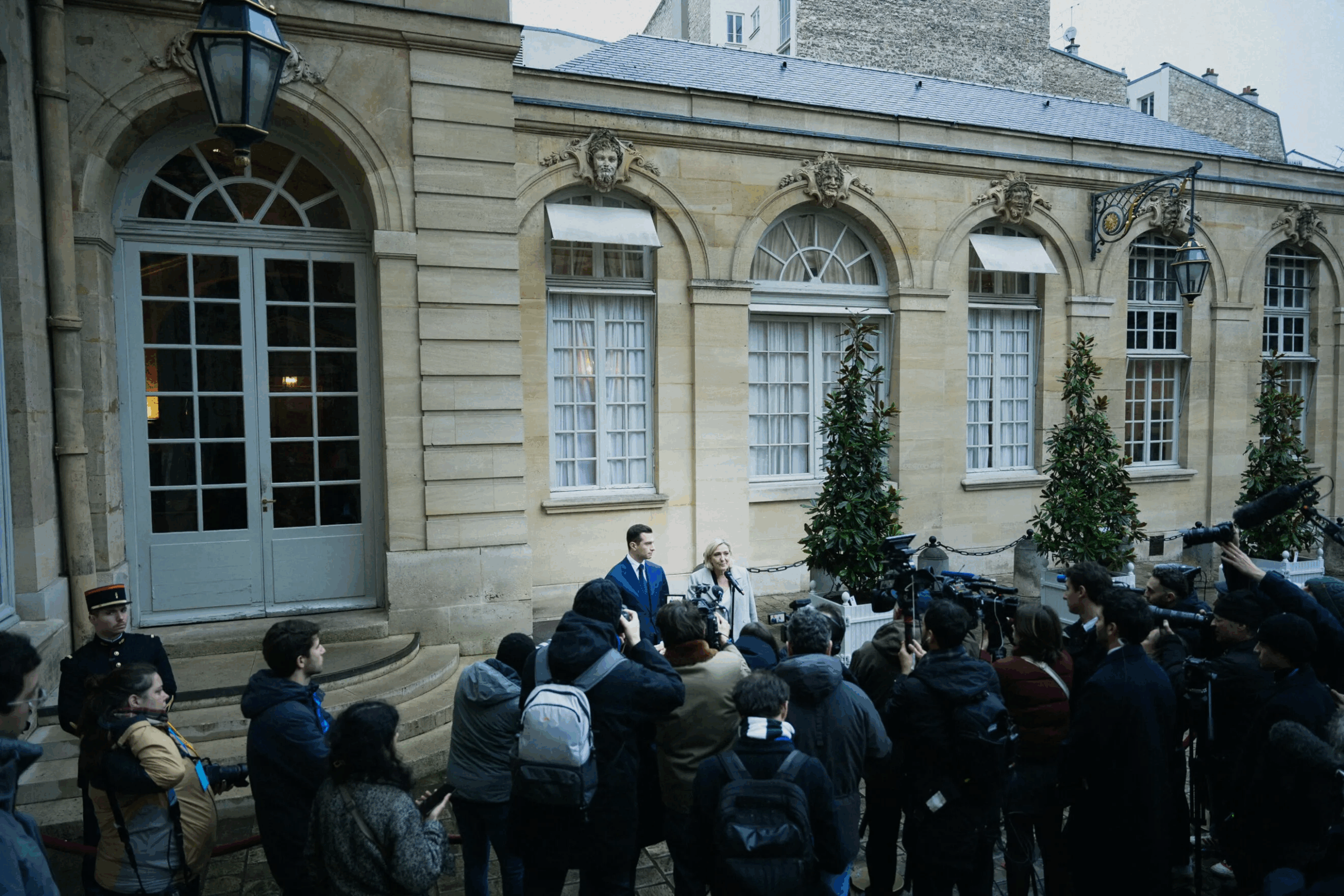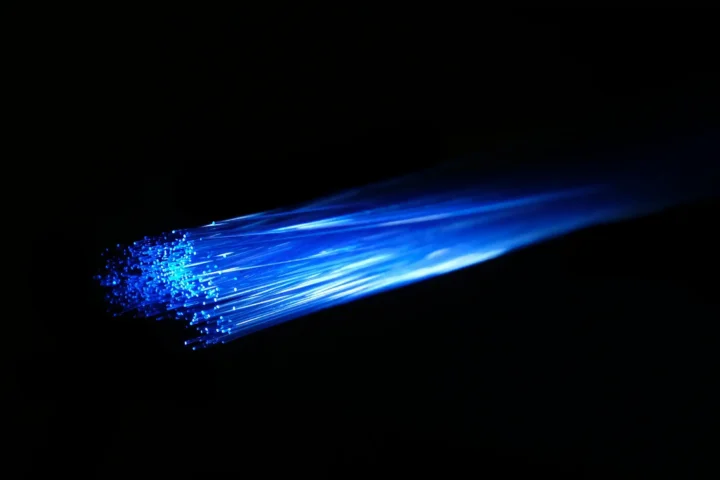As France edges closer to its next presidential contest, a quiet but profound drama is unfolding inside the country’s most popular political force. The National Rally, long dominated by Marine Le Pen, now faces a delicate question: will Le Pen herself carry the party into 2027, or has her protégé, Jordan Bardella, already begun to claim the mantle?
At stake is not only the leadership of France’s far right, but also the very identity of a movement that has grown from the margins to the cusp of power. The rivalry—at once veiled and increasingly visible—has electrified France’s political landscape and raised doubts about who the real standard-bearer of the party will be.
Le Pen’s Dilemma
Marine Le Pen has been the face of the National Rally for two decades, contesting three presidential elections and narrowing the gap each time. Her transformation of the party from the xenophobic image of her father, Jean-Marie Le Pen, into a broader populist vehicle has been key to its rise. Yet she now faces a crippling obstacle: a fraud conviction that, unless overturned on appeal, bars her from running.
Le Pen insists the ruling was politically motivated, comparing it to a “death penalty” designed to end her career. Her allies rally behind her, pointing to her strong base in France’s struggling industrial towns and her appeal among working-class voters. But even she concedes that “you can’t always control events,” a rare moment of political fatalism from a leader known for her tenacity.
If her appeal fails in 2026, the door would swing open for Bardella. For the first time, Le Pen’s place at the center of the party is no longer assured.
The Rise of Bardella
At just 29, Jordan Bardella already heads the National Rally. Once regarded as a polished apprentice who followed Le Pen’s lead, he has emerged as a political force in his own right. His youth, charisma, and untainted record make him a more palatable option to sections of the electorate that have long resisted Le Pen.
Bardella’s strategy is clear: while Le Pen built her power base among disillusioned workers in the northeast, Bardella is wooing conservative business leaders and wealthier voters in the south. His rhetoric has shifted toward economic liberalism, openly calling for cuts in social spending and praising Italian Prime Minister Giorgia Meloni as a model for balancing right-wing populism with fiscal discipline.
At a recent “Freedom Summit” in Paris, backed by influential figures such as media mogul Vincent Bolloré and billionaire Pierre-Édouard Stérin, Bardella drew raucous applause as he railed against EU regulations and hinted at reforming France’s welfare system. For many in the audience, his message was a refreshing alternative to Le Pen’s more traditional protectionism.
Two Leaders, One Party
The National Rally is now in the awkward position of presenting two figureheads at once. Officially, Bardella follows Le Pen’s orders and defers to her leadership. Yet his rising popularity in polls and his overtures to business circles suggest a parallel trajectory.
The tension surfaced earlier this summer when Bardella called for President Emmanuel Macron to resign—an unexpected move that, if successful, could have triggered an early election before Le Pen’s appeal was heard. Some Le Pen loyalists privately fumed at the gamble. Others dismissed it as youthful exuberance.
The episode underlined the party’s balancing act: Bardella must prove he is ready to lead without appearing to undermine his mentor. For her part, Le Pen cannot ignore his ascent, even as she insists on her right to run in 2027.
The result is a political dance—sometimes coordinated, sometimes clumsy—in which both leaders appear together at rallies, Bardella deferentially in Le Pen’s shadow, while insiders whisper about what will happen if the courts rule against her.
The Electoral Arithmetic
For many National Rally strategists, Bardella offers a solution to the party’s long-standing challenge: breaking the “glass ceiling” of the two-round system. Le Pen has consistently reached the runoff but failed to surpass 50 percent, as mainstream parties unite to block her. Bardella, less burdened by stigma, may have a better chance of persuading center-right voters to cross over.
His overtures have already borne fruit. He recently secured a meeting with former president Nicolas Sarkozy—a symbolic breakthrough, given Sarkozy’s past rejection of Le Pen. Bardella has also positioned himself against higher taxes on capital gains and pitched the party’s policies to chambers of commerce and corporate associations.
For Le Pen’s working-class allies, this economic liberalism risks alienating the voters who carried them this far. “They fear everything they’ve built—by courting the left-behind, by promising protection—could be swept away,” one centrist politician observed. Still, the electoral logic is undeniable: to win, the National Rally must broaden its base.
Polls and Public Perceptions
Opinion polls underscore the party’s dilemma. Both Le Pen and Bardella test well against rivals, often with similar scores. Yet pollsters note a creeping doubt among voters about Le Pen’s availability in 2027. In some surveys, Bardella is now tested as the sole candidate, a move that angered Le Pen’s loyalists but reflected a new political reality.
Within the rank and file, many express loyalty to both. At a rally in Mormant-sur-Vernisson, where the party won more than 60 percent of the European election vote, supporters waved banners for Le Pen but also spoke warmly of Bardella. “Marine has the experience, Jordan has the charisma,” said one activist. “Either could win.”
This ambivalence may be the party’s greatest strength—or its greatest risk. A divided base could fracture, but a united one could make the National Rally unstoppable.
The Road to 2027
The coming years will determine whether the National Rally finally captures the presidency. Much hinges on Le Pen’s appeal. If she is cleared, she will likely insist on running, with Bardella promised the premiership. If not, Bardella will have to step forward, carrying the weight of expectation while avoiding the impression of betrayal.
Meanwhile, France’s political establishment watches with unease. The possibility of a National Rally presidency—once dismissed as unthinkable—now seems increasingly plausible. Whether led by Le Pen or Bardella, the party is poised to reshape French politics, and perhaps Europe’s, for a generation.
For now, the question remains suspended: will the far right’s future be written by its veteran warrior, or by the smooth young leader waiting in the wings?











